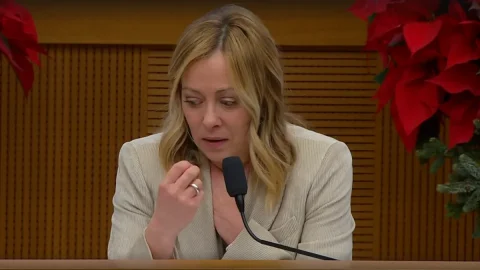On the day of the Renzi-Merkel meeting, he is the governor of the Bank of Italy Ignazio Visco to set fire to the controversy between Italy and Germany, above all following the statements, defined as "very politically incorrect", made to Corriere della Sera by Elke König, economist and president of the Single Resolution Board (Srb), the European single resolution and second pillar of the Banking Union.
König had reiterated the opposition to Rome's aid to Italian banks recalling how Germany has helped German banks, but when it was allowed: “Gorbachev once said: those who arrive late are punished by history. Honestly, Italy went through the first and second waves of the crisis without interfering with its banks”.
Visco immediately intervened, defending the strategy adopted on Italian banks. “It is necessary to distinguish between policies designed to activate market mechanisms and state aid distortions of competition”, counterattacked the governor during a workshop on the stability of the banking system in Florence. The governor noted that the particular nature of the banking sector and the objective of financial stability should require a more structured approach by the European Commission on competition and state aid. The rules, on the other hand, provide that any public intervention triggers the procedure. In this way, the objective of competition and state aid policies prevails over the objective of safeguarding financial stability. “In other words – said Visco – the fact that the financial stability is vital for the real economy”.
Visco also used a sibylline expression to make people understand how dangerous the banking issue is: “If a supermarket goes bankrupt, you close it and another opens. If one bank fails, it is very unlikely that he will open another one, it is more probable that the one next to him will start to have problems”. The consequences of a market imbalance "can be quite serious" and for this reason it is sometimes necessary to act quickly: "In the case of banks, this requires the possibility of resorting to a public safety net and, in a Union like ours, even to a supranational in the presence of systemic and contagion risks".
The number one of Bankitalia, who defended the Atlante fund, also intervened on the issue of the ECB, defining the perception that Frankfurt is pressing for a rapid disposal of impaired loans as "wrong", as "recently and publicly clarified" by the president of Eurotower Mario DraghThose. from the head of the supervisory board. This perception by the markets and the press may have been one of the reasons for the significant decline in the share prices of banks in the euro area and Italian ones in particular.
Finally, Visco calls once again for a revision of the European standards on bail-in, because "a tool, the bail-in, designed to reduce the impact of a crisis must not create the conditions" to make it more likely. Furthermore, the governor indicates that "the possibility of temporary public support should not be prohibited in cases of crisis of systemic banks", when the use of the bail-in "is not sufficient to achieve the resolution objectives" and there is a risk of "compromising financial stability". Visco recalls that he is not the only one to propose the need to rethink the bail-in, citing the latest IMF report which highlighted the "need to apply the new rules (including those on state aid) with flexibility and attention in the phase of change towards the new system”.





